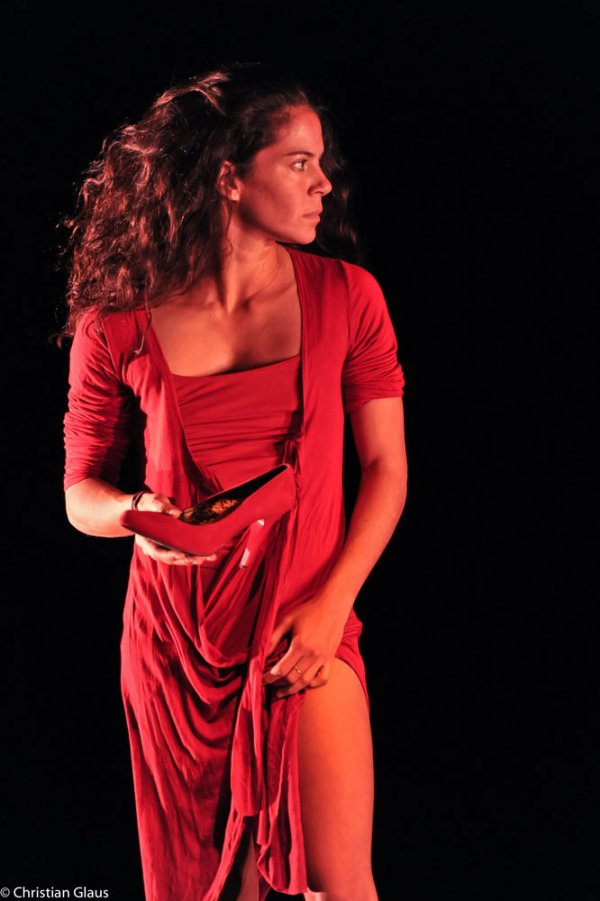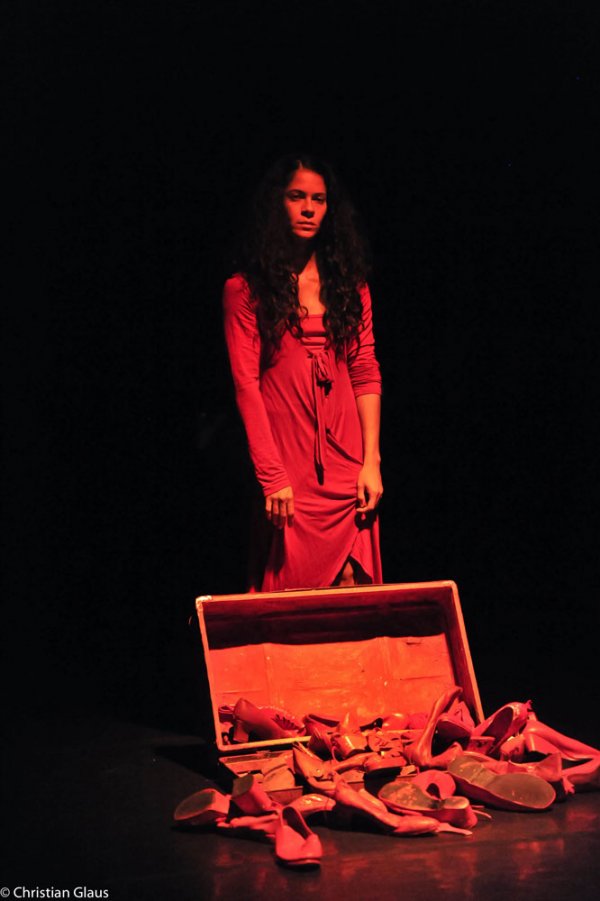Ilinca Bernea, an interview with Maura Morales
Ilinca Bernea: To me, seeing a recording of your performances - Ella and Haut - was one of the most consistent artistic revelations from the last decade. I am a keen consumer of contemporary dance and theatre-dance performances or of physical theatre. I've been obsessed with Pina Bausch for years. I discovered her performances right after I graduated from drama school and, although you create in a completely different aesthetical registry, your performances reminded me the force and the subtlety of her imagery and also the deep level originality from the scaffolding of the dramatic construction. I consider your style to be characterized by a deep sense of contrast and tension. It perfectly captures the conflictive and paradoxical nature of the current values and life styles. So, I will start by asking you a few things about the philosophical background of your artistic experiences and projects. It's obvious for anyone that you have a high degree of originality, as well as the maturity of your artistic language, and also the fact that your performances are bitter and incisive reflections on sensible and important issues of our times: the couple's crisis, the status of the dreamer in an indifferent and cynical world, the women's sexual condition in a social context wherein their sexuality is either censored or blamed and shamed etc. So:
I.B.: Do you consider yourself a militant artist? And if so, do you follow, with predilection, certain themes grounded in specific social and cultural issues?
Maura Morales: I do not consider myself a militant artist, I just try to defend the authenticity of a moment.
I.B.: Which are the recurrent themes that you approach artistically?
M.M.: I'm always interested in the role of women in an androcentric society and also in stories of anonymous people, mostly from fringe groups of our society.
I.B.: Was it hard for you to find your own aesthetic language? Do you feel it to be a new one with every new performance?
M.M.: For developing my own aesthetic language, I had do go deep into my inner world and get to know about what really affects me. Just look inside and being really honest to myself. The movements which are the result of this uncompromising honesty are the basic material of my aesthetic language
In addition to that, when you are forced to leave your country to realize your artistic visions, the only thing that you can take with you consists in never losing your own essence.
I.B.: Tell me please a short history of your life. When did you start dancing? When did you realize you were made for contemporary and not for classical dance?
M.M.: I was born in a small fishing village called Nuevitas. I always said that I wanted to be a dancer because I liked the word "dancer"! Even though I did not know what it meant until one day when I was six years old some talent scouts came to school asking me if I wanted to be a dancer! Wow, there it was, the magic word. They invited me to an audition for the art school and one year later, at the age of 7, I began my studies of classical ballet at the national ballet boarding house until the age of 18, when I graduated as a classical dancer.
After graduation I got a job as a dancer in a professional ballet company, but I realized that that language did not reflect my inner world anymore, classical ballet had become an insufficient way to express myself.
I discovered the theater, but it seemed conventional, I discovered the physical theater but it seemed limited, and finally I discovered that I needed the knowledge and practice of ALL of these genres to be able to express what I wanted to express. I discovered and began to work with a group in the Havana dance theater and with them I went on tour to a festival in Austria. And there I finally found the universe I was looking for and I decided not to go back to Cuba.
To renounce and to abandon converted into learning, developing, discovering and to continue investigating in that word that had always seduced me.
Of course dreams and realities do not become friends so easy, but I can say that these 20 years have been an endless and perhaps infinite climb, but today I enjoy having my own company, having my own language and working with artists who do their job with love and devotion.
I.B.: How was your first stage experience?
M.M.: It revealed the secret of love!
I.B.: How come you moved to Düsseldorf?
M.M.: I'd been living for 4 years in Vienna, when I was offered a contract by a dance company based in Düsseldorf! And although I only did one production with this company I decided to maintain my geographic base in Düsseldorf since then.
I.B.: Was it difficult to create your own company?
M.M.: No, creating a company is not difficult as long as you know why you are doing this and how big you necessity to create is.
I.B.: How were you as a child?
M.M.: I was living in an oneiric world!
I.B.: How would you describe your creative goals?
M.M.: I would like to achieve that, by watching our performances, the audience would discover something inside of their minds, of which they hadn't known before that it's been existing hidden in their inner world!
I.B.: Name for me, please, several key words that would define your aesthetic genre?
M.M.: Honesty, Challenge, Emotions.


Niciun comentariu:
Trimiteți un comentariu